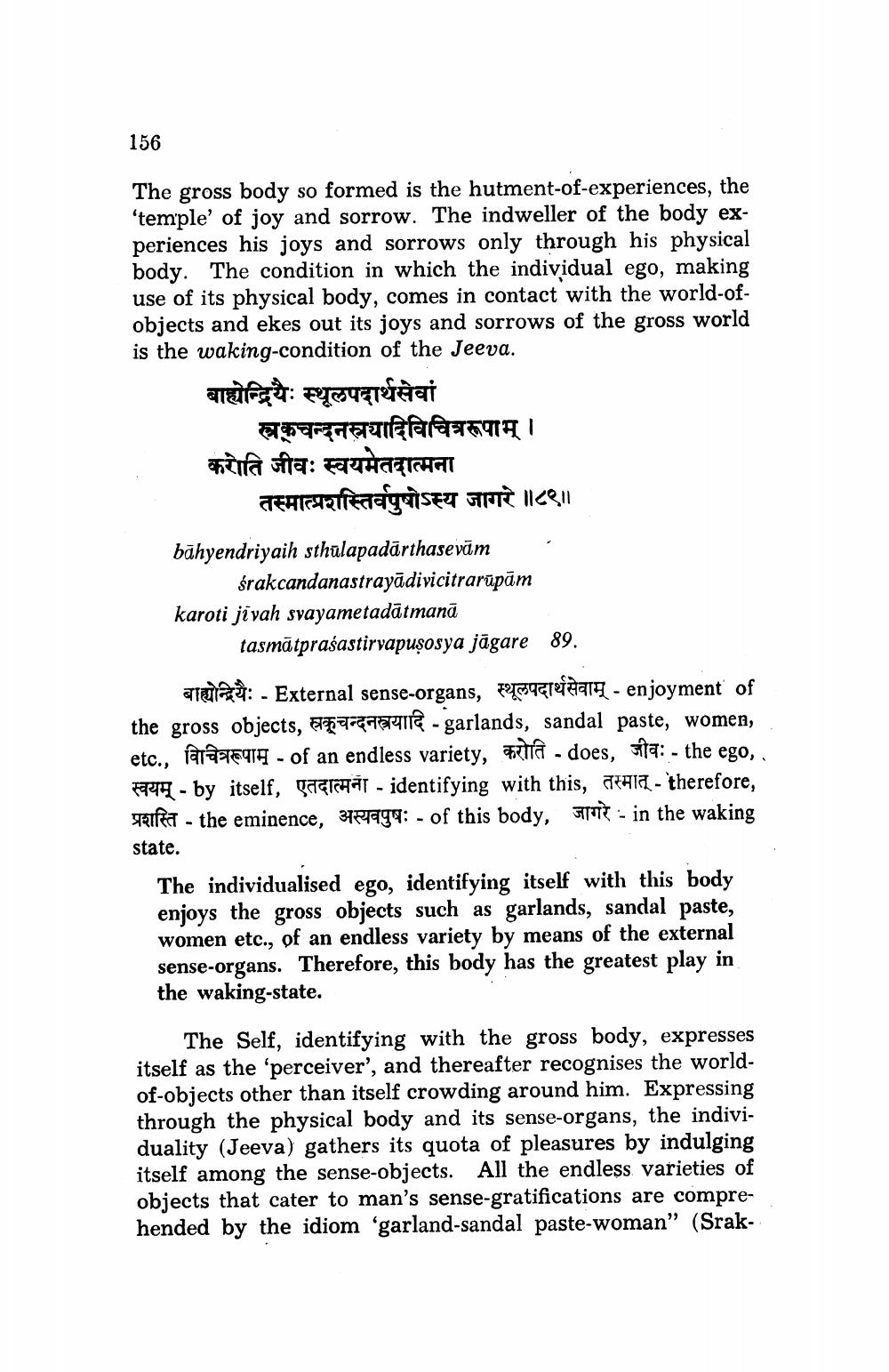________________
156
The gross body so formed is the hutment-of-experiences, the 'temple' of joy and sorrow. The indweller of the body experiences his joys and sorrows only through his physical body. The condition in which the individual ego, making use of its physical body, comes in contact with the world-ofobjects and ekes out its joys and sorrows of the gross world is the waking-condition of the Jeeva. बाह्यन्द्रियैः स्थूलपदार्थसेवां
स्त्रकचन्दनस्रयादिविचित्ररूपाम् । करोति जीवः स्वयमेतदात्मना
तस्मात्प्रशस्तिर्वपुषोऽस्य जागरे ॥८९॥ bāhyendriyaih sthalapadārthasevām
śrakcandanastrayādivicitrarūpām karoti jivah svayametadātmanā
tasmātprašastirvapusosya jāgare 89.
बाह्योन्द्रयैः - External sense-organs, स्थूलपदार्थसेवाम् - enjoyment of the gross objects, la coalie - garlands, sandal paste, women, etc., विचित्ररूपाम - of an endless variety, करोति - does, जीवः - the ego, . स्वयम् - by itself, एतदात्मना - identifying with this, तस्मात् - therefore, प्रशस्ति - the eminence, अस्यवपुषः - of this body, जागरे - in the waking
state.
The individualised ego, identifying itself with this body enjoys the gross objects such as garlands, sandal paste, women etc., of an endless variety by means of the external sense-organs. Therefore, this body has the greatest play in the waking-state.
The Self, identifying with the gross body, expresses itself as the 'perceiver', and thereafter recognises the worldof-objects other than itself crowding around him. Expressing through the physical body and its sense-organs, the individuality (Jeeva) gathers its quota of pleasures by indulging itself among the sense-objects. All the endless varieties of objects that cater to man's sense-gratifications are comprehended by the idiom 'garland-sandal paste-woman” (Srak




